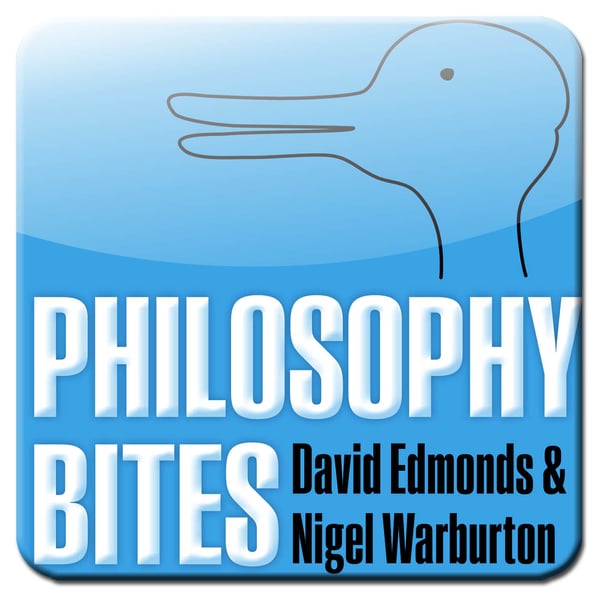Jonathan Wolff on Political Bioethics (originally on Bioethics Bites)
Philosophy Bites
Nigel Warburton
4.6 • 2K Ratings
🗓️ 10 June 2012
⏱️ 20 minutes
🧾️ Download transcript
Summary
How should health resources be distributed? Jonathan Wolff discusses this and related questions in this episode of the Philosophy Bites podcast. This episode was originally released on Bioethics Bites in association with the Oxford Uehiro Centre for Practical Ethics and made possible by a grant from the Wellcome Trust.
Transcript
Click on a timestamp to play from that location
| 0:00.0 | This is a biorethics bites with me David Edmonds and me Nigel Warberton. |
| 0:07.0 | Bioethics is made an association with Oxford's Uroheiro Center for Practical Ethics and made possible by Grant from the Welcome Trust. |
| 0:15.0 | For more information about Bioethics Bites, go to www |
| 0:19.2 | dot practical ethics dot oX dot AC c. u k or to iTunes you |
| 0:26.0 | imagine the following choice you could either finance medical treatment |
| 0:29.9 | that restored hearing to 50 people who'd lost hearing in just one ear, or you could pay the same |
| 0:34.8 | amount to treat an entirely deaf person so that this one person could hear perfectly. |
| 0:40.8 | Which would you choose? |
| 0:42.4 | To help the 50 or the one? In this series we've mainly focused on dilemmas and debates involving individual doctors and patients. |
| 0:50.0 | Jonathan Wolf is a political theorist and he believes that traditional bioethics misses a vital dimension, the distribution of resources. |
| 0:59.0 | Joe Wolf, welcome to bioethics bites. |
| 1:01.0 | Well, thank you for having me. |
| 1:03.2 | The topic we're going to talk about is political bioethics. |
| 1:07.4 | In a sense, that's a new subject. |
| 1:09.3 | Could you just say what it is and how it relates to traditional bioethics. |
| 1:14.0 | Traditional bioethics has focused on what goes on in the hospital or in the GP surgery. |
| 1:21.0 | A whole series of doctors dilemmmmas as they've been called. |
| 1:24.8 | What should we tell the patient? What can we release to the patient's family? What should we do with |
| 1:29.2 | the patient's organs after surgery? What should we do at the beginning of life? Should we save the baby |
| 1:35.8 | or not? What can we do at end of life? Can we legitimately engage in euthanasia? Those are all very |
| 1:42.0 | good questions, but they're all about the doctors relation |
| 1:46.7 | with the patient or sometimes with the patient's family. The type of thing I'm interested in, |
... |
Please login to see the full transcript.
Disclaimer: The podcast and artwork embedded on this page are from Nigel Warburton, and are the property of its owner and not affiliated with or endorsed by Tapesearch.
Generated transcripts are the property of Nigel Warburton and are distributed freely under the Fair Use doctrine. Transcripts generated by Tapesearch are not guaranteed to be accurate.
Copyright © Tapesearch 2025.

